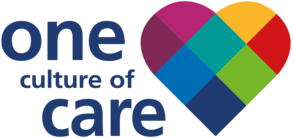A family has thanked our Speech and Language Therapy (SALT) team for helping to get their little boy settled into mainstream reception class at school.
Jack Oakley has Developmental Language Disorder (DSL) and has been supported by the Kirklees SALT team for around two years now. His parents Colin and Lisa, said: "Jack made so much progress with the SALT team we can’t thank them enough. He is now settled in mainstream primary school and is making fantastic strides with his talking."
Our SALT team are highlighting the condition as it is Developmental Language Disorder Awareness Day tomorrow (Friday 19th October).
Our team work with local children at Princess Royal Health Centre in Huddersfield, and Broad Street Plaza in Halifax.
Jack is one of scores of youngsters cared for by our SALT team.
He attended ICAN school* for one year, Monday to Friday mornings, where he enjoyed it a lot. They helped him build on his Makaton signs to communicate until his verbal sounds started to turn into words. The ICAN team were fantastic at supporting Jack and our family too.
Jack likes to communicate about everything around him whether it is something new he sees, something that is affecting him or something that he is enjoying (or not). Jack will give us commentary on what he is doing at that moment and also what he would like to do in the future. Jack communicates through sounds and words, with help from gesturing sometimes.
He is slowly learning new phonics as the time progresses at his new school in Shelley, where he is in the reception class.
*the ICAN nursery is provides support for families and children with specific speech, language and communication needs through intensive specialist support and teaching and specific speech and language therapy in a language rich environment. The children are integrated within the Nursery class of Ashbrow School in Huddersfield. The provision is one of a UK wide network, developed by the ICAN charity, which helps children with speech and language difficulties across the UK).
** DLD is a ‘hidden condition’ that effects on average two children in every classroom causing difficulties with spoken language, language understanding, communication, and reading - with high risk of dyslexia. The complexity of DLD means that it can have a serious and long-term impact on development. According to The Manchester Language Study, 40% of those with DLD say that by age 16 they had difficulties interacting with their peers with half experiencing bullying during their childhood. Separate research found teenagers with DLD were more than twice as likely to report symptoms of depression as their typically developing peers. Without diagnosis and specialist support, the impacts of DLD can last into adulthood by increasing the risk of unemployment and reducing the opportunity to be independent.
By increasing awareness and recognition of DLD, the ambition is to ensure any child affected is able to access specialist speech and language therapy and support they need. To help, the ‘Raise Awareness of DLD’ team has produced an easy to use guide on the key facts about the condition. To find out more about DLD go to www.youtube.com/RADLD.
Strategies to support children with language difficulties include:
Listen and look at what the child is trying to communication – children may use body language and gestures to help get their message across.
Allow pauses for a response. The child may need time to take in the information. A child may require up to 10 seconds to respond before the adult repeats or rephrases the question or instruction.
Not too much language at once! Break a long sentence into short separate ideas
Get down to the child’s level
Use the important words in a sentence instead of words like: he/it/there E.g. Instead of: “He is eating it” – “The boy is eating the apple”
Adjust the number of questions you ask, instead you can make a comment e.g. “a car!” rather than “what’s that?”
Gestures help children to understand words
Every child has something to say, even if they can’t say it using words!
Want to know more? – Useful websites


.jpg)